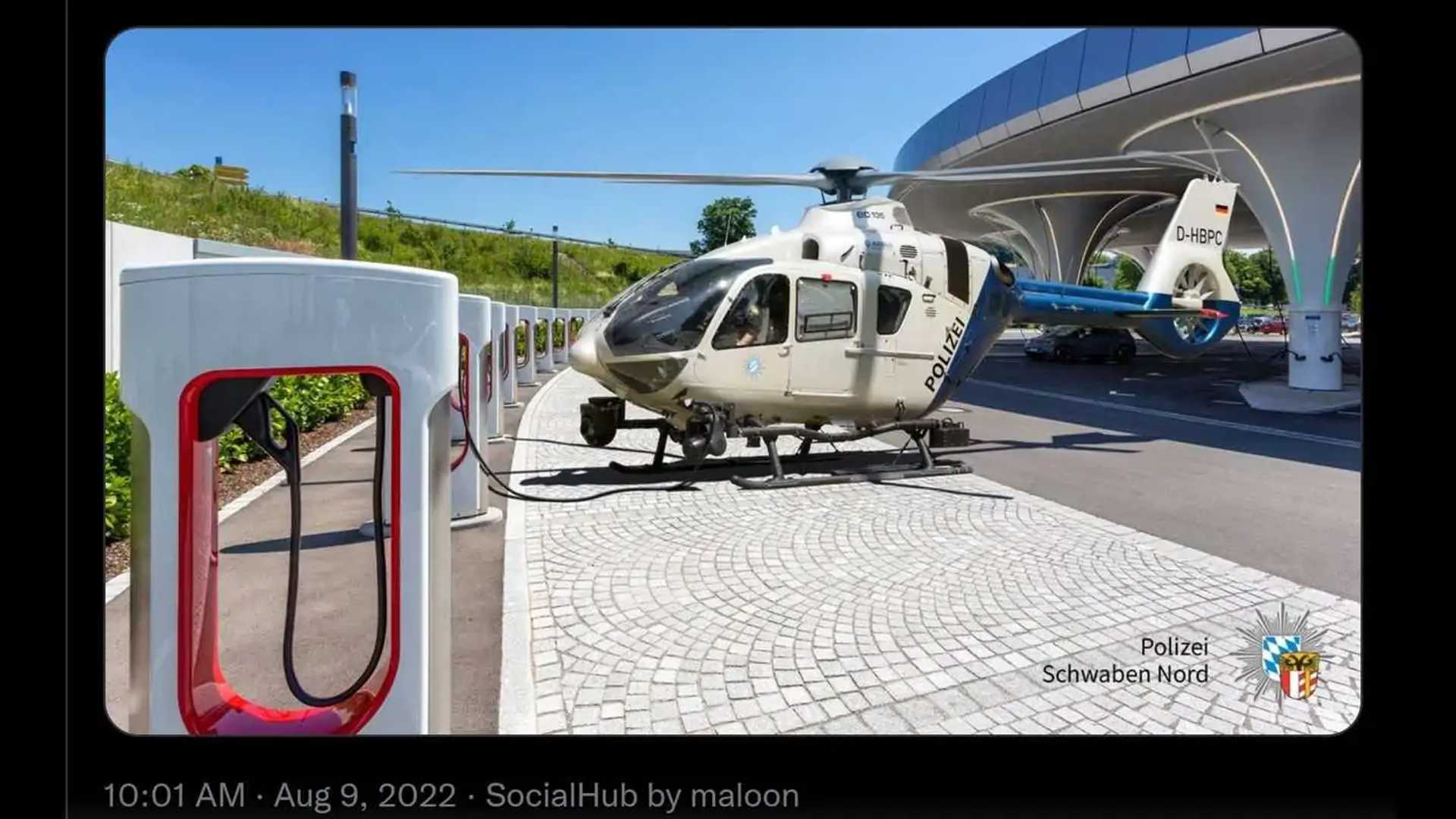
Here is an interesting finding from Germany, where the Police Department in Bavaria launched a campaign against blocking charging stalls (aka ICEing).
In the early days, such intentional or non-intentional blocking was usually associated with internal combustion engine (ICE) vehicles - this is from where the name comes.
We saw many examples of such behavior, which in some cases completely prevented electric drivers from charging opportunities and was especially harmful to EV adoption.
In the image shared above, we can see a helicopter at a Tesla Supercharging station, but it's not an extreme case of ICEing, rather it's just an image (fake picture, in fact) to catch the attention and send a clear message that police are monitoring the situation at public charging stations as well.
However, maybe someday police will acquire some kind of electric heloc0pter or electric VTOL (vertical take-off and landing aircraft).
Charging stations are envisioned only for electric vehicles, and only for charging - so even electric vehicles must move away after finished charging (usually there is a short grace period, after which some networks charge an idle fee).
It's interesting that the police in Bavaria used the Tesla Supercharging station as an example, as there are a few local electric car manufacturers (BMW, Mercedes-Benz and Porsche). We guess that Tesla is simply the most popular and kind of synonymous with electric cars, like the Toyota Prius with hybrids in the past.
It also might be partially related to the fact that Tesla has opened some of its stations to non-Tesla vehicles in a total of 13 European countries, including Germany.
Anyway, the problem of ICEing is still real, because there are more and more charging stations, while the parking space remains limited. At some locations, it might be problematic, at least until all drivers understand how it works.
Depending on a country or state, the rules of what to do with ICEing might vary, but we guess that in most cases, it will result in a fine and/or the vehicle will be towed away.







